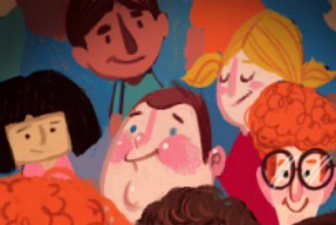Humans (known taxonomically as Homo sapiens,[3][4] Latin for “wise man” or “knowing man”)[5] are the only living species in the Homo genus. Anatomically modern humans originated in Africa about 200,000 years ago, reaching full behavioral modernity around 50,000 years ago.[6]
Humans have a highly developed brain and are capable of abstract reasoning, language, introspection, and problem solving. This mental capability, combined with an erect body carriage that frees the hands for manipulating objects, has allowed humans to make far greater use of tools than any other living species on Earth. Other higher-level thought processes of humans, such as self-awareness, rationality, and sapience,[7][8][9] are considered to be defining features of what constitutes a “person“.[citation needed]
Humans are uniquely adept at utilizing systems of communication for self-expression, the exchange of ideas, and organization. Humans create complex social structures composed of many cooperating and competing groups, from families and kinship networks, to nations. Social interactions between humans have established an extremely wide variety of values, social norms, and rituals, which together form the basis of human society. With individuals widespread in every continent except Antarctica, humans are a cosmopolitan species. As of November 2011, the human population was estimated by the United Nations Population Division to be about 7 billion,[10] and by the United States Census Bureau to be about 6.97 billion.[11]
Humans are noted for their desire to understand and influence their environment, seeking to explain and manipulate phenomena through science, philosophy, mythology, and religion. This natural curiosity has led to the development of advanced tools and skills, which are passed down culturally; humans are the only species known to build fires, cook their food, clothe themselves, and create and use numerous other technologies and arts. The study of humans is the scientific discipline of anthropology.




